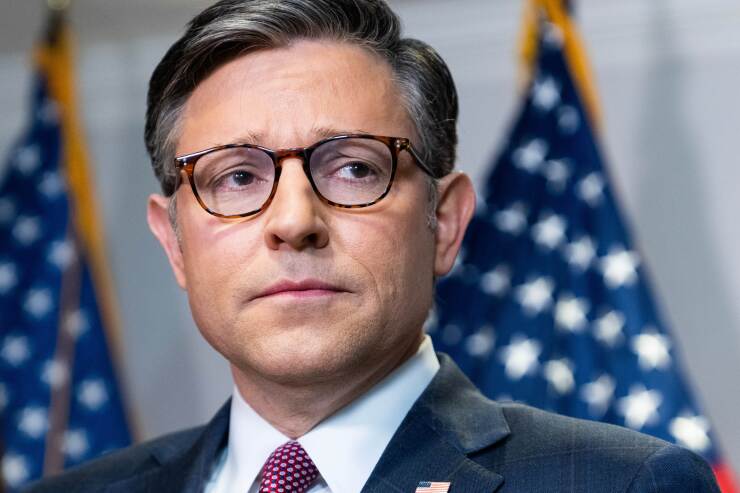House Republicans are squabbling over legislation that ties keeping the government open past Sept. 30 to legislation that would strengthen voting rules, as state and local governments brace for a possible curtailment of federal funding.
The bill, labeled as the "Safeguard American Voter Eligibility Act" adds additional obstacles to prevent non-U.S. citizens from voting in presidential elections, which is already illegal. House Speaker Mike Johnson R- La., is personally leading the charge on getting the bill passed.
"This will be one of the most important votes that members of this chamber will ever take in their entire careers. And it's an issue we never thought we would have to actually address, but that moment has come to us now," he said in a statement.

Voting on the bill was scheduled for Wednesday afternoon but the Speaker changed course and pulled it from the docket in the face of opposition from members of his own party including defense hawks looking for a boost in military spending.
The Democratically controlled Senate has already said the bill will not advance through the upper chamber and the White House has indicated a veto if it gets that far.
The impact of a partial or full shutdown would extend far beyond Washington.
"Nearly a third of county revenue comes from intergovernmental sources, so our ability to plan and execute effectively on our responsibilities hinges not only on the availability of federal funding, but also its reliability," said Nicole Weissman, director of strategic communications, National Association of Counties.
"Many federal grants to local governments are provided on a reimbursement basis," said Irma Esparza Diggs, senior executive and director, federal advocacy, National League of Cities. "The local government spends out their own dollars first and are reimbursed by federal agencies after submitting the receipts. If a federal government shutdown disrupts that system, local government grantees are carrying that debt longer than anticipated."
The $1.6 trillion proposal calls for extending current spending levels for six months and has the support of former President Trump. Operating under a continuing resolution till March 28, is seen as a strategic move, especially if the White House changes hands. A new president and re-configured Congress would be able to change spending priorities for the 2025 fiscal year.
The convoluted appropriations process for the new fiscal year begins with a presidential budget that's submitted in February, the year before. Both houses of Congress work through the numbers and are supposed to have appropriations bills finalized by June 30 for the new fiscal year that starts Oct. 1.
According to
During the appropriations process, emergency situations and side deals can change where the dollars actually get spent.
Former Speaker of the House Kevin McCarthy was unseated over bitter appropriations battles at the end of the last fiscal year that eventually looped in funding for wars in Ukraine and Israel along with budget cuts to the Internal Revenue Service.
Getting the budget process back on schedule remains a desirable goal for everyone affected by the brinkmanship.
"Counties encourage our federal partners to work together towards bipartisan, long-term solutions that ensure the dependability of the intergovernmental partnership," said Weissman.
Diggs adds, "There should really be no occasion for any level of government to shut down without a complete understanding of what the loss of government services, even temporarily, means for communities and residents."





